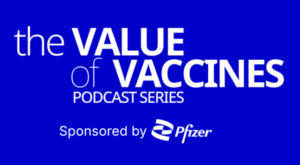Mobile Health a hot topic on Capitol Hill
Capitol Hill is keen to know more about telehealth and health care information technology. Today, I am participating in a roundtable discussion on mobile health as part of an event hosted by Qualcomm and the American Telemedicine Association. Why “mHealth” anyway? It’s because we’re a mobile society. As B.J. Fogg, the director of the Stanford Persuasive Technology Lab, wrote, “We don’t merely adopt cell phones; we marry them.” In our 24×7 lives, we’re project managing our entertainment, financial management, travel services, and shopping via mobile devices. Engaged health consumers ask, “why can’t I ‘DIY’ my health the way I manage other
Save the Children…and the Mothers
It’s good to be a kid in Norway, Australia, Iceland, Sweden, and Denmark. The worst country to be a kid on the planet is Afghanistan, which ranks lowest based on the Mothers’ Index Ratings in Save the Children’s State of the World’s Mothers 2010 report, the 11th annual version of this project. You might notice the United States hasn’t yet been mentioned. That’s because it’s not in the top 5 best places to be a woman or a kid; but the U.S. is also far, far from the worst nation in terms of childhood and maternal health metrics. The U.S. ranks
Health care confidence crisis worsens among Americans
Americans’ faith in their ability to obtain and pay for health care has eroded in 2010. Notwithstanding the fact that a health reform bill has passed and the nation’s macroeconomic measures appear to be picking up, people in the U.S. are losing confidence in their ability to access and pay for health care. The chart illustrates the downward trend in Americans’ perceived ability to access and pay for health care both in the past 3 months and in the next 3 months. Thomson Reuters bases the Consumer Healthcare Sentiment Index on looks back 3 months and ahead for 3 months.
The state of the States and health reform
The impact of health reform could be devastating to the budgets of states by 2014 — the year that Governors must kick in substantial additional expenses that will cover the uninsured who are absorbed into existing health care programs. The Patient Protection and Affordable Care Act of 2010 builds on existing state health programs (read: Medicaid and CHIP for children) to provide coverage for uninsured Americans in 2014. Moody’s, the credit rating agency, has issued a report, Healthcare Reform Expected to Create Longer Term Financial Pressure for States, which finds that the states with largest gains in Medicaid enrollment will have the most
Administrative simplification as health reform
Physicians spend 12% of their net revenue to cover administrative waste in the course of practicing medicine over a year. Simplifying payment and billing through a universal form would save doctors in the U.S. $7 billion (yes, “billion” with a “b”). This sad story of waste is detailed in a Web First article on the Health Affairs website titled, Saving Billions of Dollars – And Physicians’ Time — By Streamlining Billing Practices. The research comes from a team from Massachusetts General Hospital, and includes the institution’s CFO — to whom $7 billion is surely ‘real’ money. The authors point out that
The cost of cancer care – too costly to consume?
In the current paradigm of Too Big To Fail, are cancer drugs and care Too Costly To Consume? A plethora of evidence says that, for a growing number of health citizens, the answer is “yes.” First, think about the scope of the cancer challenge in the U.S. The March 17 2010 issue of the Journal of the American Medical Association focused on cancer: prevalence, treatment, and cost. Elkin and Bach’s article talks about addressing cancer’s next frontier – not treatment innovation, but costs. In their article on caring for patients with cancer, Pasche et. al. write, “With the current lifetime probability of being diagnosed





 Thanks to Jennifer Castenson for
Thanks to Jennifer Castenson for  Jane joined host Dr. Geeta "Dr. G" Nayyar and colleagues to brainstorm the value of vaccines for public and individual health in this challenging environment for health literacy, health politics, and health citizen grievance.
Jane joined host Dr. Geeta "Dr. G" Nayyar and colleagues to brainstorm the value of vaccines for public and individual health in this challenging environment for health literacy, health politics, and health citizen grievance.  I'm grateful to be part of the Duke Corporate Education faculty, sharing perspectives on the future of health care with health and life science companies. Once again, I'll be brainstorming the future of health care with a cohort of executives working in a global pharmaceutical company.
I'm grateful to be part of the Duke Corporate Education faculty, sharing perspectives on the future of health care with health and life science companies. Once again, I'll be brainstorming the future of health care with a cohort of executives working in a global pharmaceutical company.